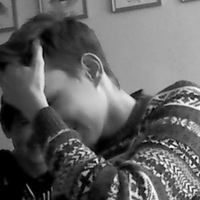
V.Работаем над грамматикой.(Раскрываем скобки и ставим возвратные глаголы в прошедшем времени
passé compose – в тетрадях). Фото отправляем учителю до 13.00 ч.28 января !!! Je (se réveiller) - Nous (se brosser)- Tu (se coucher)- Vous (se lever) Il (se promener)- Ils (se peigner) Elle (s'habiller)- Elles (se laver) С глаголом etre 0
0
 0
0
Ответы на вопрос
 Внимание! Ответы на вопросы дают живые люди. Они могут содержать ошибочную информацию, заблуждения, а также ответы могут быть сгенерированы нейросетями. Будьте внимательны. Если вы уверены, что ответ неверный, нажмите кнопку "Пожаловаться" под ответом.
Внимание! Ответы на вопросы дают живые люди. Они могут содержать ошибочную информацию, заблуждения, а также ответы могут быть сгенерированы нейросетями. Будьте внимательны. Если вы уверены, что ответ неверный, нажмите кнопку "Пожаловаться" под ответом.

Ответ:
Ответ:
1. Il est mort en 1994.
2. Nous sommes allés au parc.
3. Je suis (resté à Lyon.
4. Elles se sont offertes un cadeau.
5. Tu es (descendu de l'avion.
6. Vous êtes (devenus Français.
Объяснение:
Объяснение:
 0
0
 0
0

Conjugating Reflexive Verbs in Passé Composé
To conjugate reflexive verbs in the passé composé (past tense) in French, we need to use the auxiliary verb "être" and the past participle of the reflexive verb. Let's conjugate the given reflexive verbs in the passé composé:
- Je (se réveiller) - *Je me suis réveillé(e)* - "Je me suis réveillé(e)" is the passé composé form of "Je se réveiller" using the reflexive pronoun "me" and the past participle "réveillé".
- Nous (se brosser) - *Nous nous sommes brossé(e)s* - "Nous nous sommes brossé(e)s" is the passé composé form of "Nous se brosser" using the reflexive pronoun "nous" and the past participle "brossé".
- Tu (se coucher) - *Tu t'es couché(e)* - "Tu t'es couché(e)" is the passé composé form of "Tu se coucher" using the reflexive pronoun "te" and the past participle "couché".
- Vous (se lever) - *Vous vous êtes levé(e)(s)* - "Vous vous êtes levé(e)(s)" is the passé composé form of "Vous se lever" using the reflexive pronoun "vous" and the past participle "levé".
- Il (se promener) - *Il s'est promené* - "Il s'est promené" is the passé composé form of "Il se promener" using the reflexive pronoun "se" and the past participle "promené".
- Ils (se peigner) - *Ils se sont peignés* - "Ils se sont peignés" is the passé composé form of "Ils se peigner" using the reflexive pronoun "se" and the past participle "peigné".
- Elle (s'habiller) - *Elle s'est habillée* - "Elle s'est habillée" is the passé composé form of "Elle s'habiller" using the reflexive pronoun "se" and the past participle "habillé".
- Elles (se laver) - *Elles se sont lavées* - "Elles se sont lavées" is the passé composé form of "Elles se laver" using the reflexive pronoun "se" and the past participle "lavé".
In the passé composé, reflexive verbs use the auxiliary verb "être" and the past participle agrees in gender and number with the subject when the reflexive pronoun is a direct object.
 0
0
 0
0
Похожие вопросы
Последние заданные вопросы в категории Французский язык
-
Математика
-
Литература
-
Алгебра
-
Русский язык
-
Геометрия
-
Английский язык
-
Химия
-
Физика
-
Биология
-
Другие предметы
-
История
-
Обществознание
-
Окружающий мир
-
География
-
Українська мова
-
Информатика
-
Українська література
-
Қазақ тiлi
-
Экономика
-
Музыка
-
Право
-
Беларуская мова
-
Французский язык
-
Немецкий язык
-
МХК
-
ОБЖ
-
Психология
-
Физкультура и спорт
-
Астрономия
-
Кыргыз тили
-
Оʻzbek tili
















